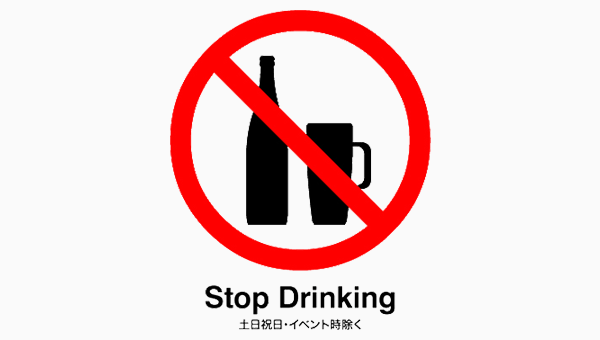
Seeking the experts opinion about Pain Management is very important because from there you will realize that it is not only medication that relieves pain. Other activities like exercise are also good for re leaving pain.
We have been making inroads in the line of pain management with a view of living a more comfortable life without pain. But we have also realized that pain will always be there with us as long as we live. This means that we have to device means and methods of living with it or better still ensuring that what we have as pain is manageable and has little or no effect on the comfort of our lives. For a couple of articles we have posted in the past we noticed that there are several kinds of pain and doctor Dalal Akoury MD and founder of AWAREmed Health and Wellness Resource Center has been very instrumental in helping us put several things about chronic pain to perspective. We therefore want to introduce another dimension of looking at pain holistically by seeking the expert’s opinion about pain management in the current society. It is important to note that pain is a global problem and must be treated with a lot of seriousness it deserve. Take for example a country like America with a population of about 50 million people living with chronic pain this should be a serious point of concern. With such a huge population struggling with pain living a full and active life may be compromised and may seem like an impossible dream. If this is troubling you, then we want to give you hope that all is not lost and giving up must never be an option. Doctor Akoury says that in the event that the pain treatment you have tried doesn’t provide relief as you would want it to be, a pain clinic may help.
If you are wondering what a pain clinic is, then worry no more this is a health care facility that focuses on the diagnosis and management of chronic pain. Your specific pain will be addressed professionally in such facilities where professionalism is the practice. It is important to note that some of these facilities specialize in specific diagnoses or in pain related to a specific region of the body which can be an added advantage to your specific needs. These health facilities are also known as pain management clinics. Most of these pain clinics often use a multidisciplinary approach to help people take an active role in managing their pain and regaining control of their life. These programs are focused on the total person needs and not just the pain.
This is a very good question. Therefore it is important to note that even though pain clinics may differ in their respective focus and offerings, most of them involve a team of health care providers that can help you with a variety of strategies to manage your pain. These health care providers are likely to include doctors of different specialties and gifting’s as well as non-physician providers specializing in the diagnosis and management of chronic pain. These providers may include psychologists, physical therapists, and complementary and alternative therapists such as acupuncturists or massage therapists. Together, they will put together a pain management plan for you.
When you visit any of the pain clinics your therapy plan will be tailored to your specific needs, circumstances, and preferences. And just for your consumption, depending on the cause of your pain, the administration of treatment may include one or more of the following:
Medications in many cases, patients are prescribed treatment before receiving other forms of therapy. Medications for pain may include:
Non-aspirin pain relievers – These drugs, such as acetaminophen (Tylenol), relieve minor pain and are sometimes combined with other drugs to provide greater pain relief.
Non-steroidal anti-inflammatory drugs (NSAIDs) – These are available over the counter or by prescription, these drugs may include ibuprofen (Motrin) or naproxen (Aleve, Naprosyn) are used to treat pain and inflammation.
Corticosteroids – Available only by a prescription, these cortisone-like drugs are used for more severe inflammatory conditions.
Opioid pain medications – this morphine-like drugs are often prescribed short term for acute pain or for cancer pain. Occasionally, doctors prescribe them for chronic, non-cancer pain.
Antidepressants – Originally designed to treat depression, these drugs can be useful for relieving certain types of pain. Antidepressants may also promote sleep, which can be difficult when you are in pain.
When you are struggling with certain pain and you are seeking for treatment, it is important for you to appreciate that many at times it is not going to be medication alone. Ideally medications alone may not be enough to treat chronic pain. Other treatments may be more effective than medications, and medication may be more effective when combined with other treatments. Therefore the other available treatments offered by pain centers may include:
Injections – Local anesthetics, sometimes combined with a corticosteroid, may be injected around nerve roots or into muscles and joints to relieve irritation, swelling, and muscle spasms.
Nerve blocks – If a group of nerves, called a ganglion or plexus, causes pain to a specific organ or body region, injections with local anesthetics may be useful for blocking the pain in that area.
Physical and aquatic therapy – A physiatrist (doctor specializing in rehabilitation medicine) or physical therapist may prescribe a specially tailored exercise program to increase function and decrease pain. Other physical therapy options at pain clinics may include whirlpool therapy, ultrasound, and deep-muscle massage.
Acupuncture – This ancient Chinese practice involves inserting very thin needles at specific points on the skin to relieve pain.
Psychological support and counseling – Although pain is a physical sensation, many people in pain suffer emotionally with feelings of anger, sadness, and hopelessness. Dealing with unrelenting pain can affect your ability to hold a job, maintain a home, meet family obligations, and relate to friends and family members. Psychological support, along with medical treatment, can help you manage your condition.
Relaxation techniques – In addition to counseling, mental health professionals can teach you self-help techniques such as relaxation training or biofeedback to reduce stress and relieve pain.
Surgery – Although sometimes surgery is clearly necessary to relieve a problem that is causing pain, it is often a treatment of last resort. If pain has not responded to any other treatment, surgery on certain nerves may offer relief and allow you to resume normal activities.
If you decide you want to try a pain clinic, your doctor should be able to refer you to one that offers services to help your specific pain problem. If your doctor cannot help you, try the following:
Your local hospital – Ask your local hospital or medical center if they have or are affiliated with a pain treatment center. If the hospital does not have one, ask to speak with their department of anesthesiology, which may have doctors on staff who can refer you to a different hospital.
Organizations – Organizations that support pain research or advocate for pain patients may be able to help. Like for instance, you may call the American Society of Anesthesiologists (ASA).
Because there are many forms of pain treatment and not all centers offer the same services, it’s important to do your homework before you consent to treatment. Find out what types of pain therapies are offered, what the specialists’ credentials are, and if they have successfully helped others with your type of pain. Finally if you have any concern about pain doctor Akoury will be able to help you out in the most professional way call her today.








